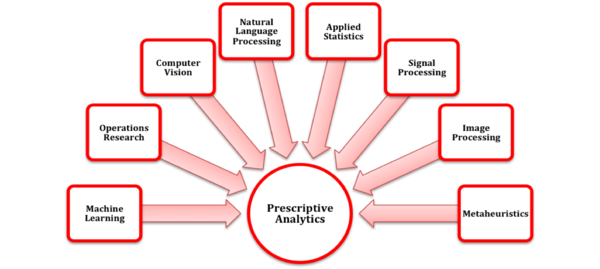In a fast-paced world that thrives on knowledge and demands business intelligence, data has become indispensable. However, even with the great importance of data, many struggle in using it to guide effective decisions. To continue helping our clients navigate these murky analytical waters, Stone Ward has partnered with Lyon College’s data science program. This partnership will allow students and faculty to work alongside Stone Ward’s analytics department with the goal of using advanced analysis to drive unmatched marketing performance.
Powerful Partnerships Drive Powerful Results
The main benefit of partnerships is that they create something bigger than the sum of what each party could create on their own. For Lyon College, students and faculty will receive access to real-world data and complex problems that can’t be found in textbooks or fabricated spreadsheets. For Stone Ward, access to the brightest analytical minds will accelerate marketing insights backed by state-of-the-art technology.
To maximize this partnership, data solutions will focus on prescriptive analysis, the most advanced form of analysis that uses mathematical and computational sciences to not only anticipate what will happen and when it will happen, but also why it will happen.
As an example, if a client sells ice cream, less complex descriptive analysis will show that more ice cream is sold on hotter days. However, when using prescriptive analysis, that same client will see for every degree the temperature rises above 80 degrees, they should increase the cost of the product by $1.26 to generate larger incremental sales. While knowing that hotter days are better for sales, the ability to influence sales based on data is why analysts strive for prescriptive analysis, as it addresses the why of a problem.

Prescriptive Analytics Makes Marketing Easier
Prescriptive analytics provides clear, precise answers to marketing questions. Whereas some analytic models can tell us what might happen next year, prescriptive analytics focuses on the influence of one factor upon another. Because prescriptive analysis answers the “how,” it opens up an array of mathematical techniques. From statistical models determining how precipitation affects sales, to implementing machine learning and neural networks to identify attitudes of various demographics to products, this type of analysis drives actionable, business decisions through clear reasoning and expected outcomes. By partnering with Lyon College, Stone Ward hopes to make the following statistical models and prescriptive analysis a modus operandi for all our clients.
Multi-Linear Regression
Example: The statistical modeling of multiple values against a key metric is known as a multi-linear regression (MLR). An example of a MLR would be analyzing the relationship between wins, losses, precipitation and marketing spend against ticket sales for a Lyon College football game.
This model could identify that for every win, Lyon could expect 100 more attendees, for every loss Lyon could expect 25 less attendees, and for every $50 spent on marketing, Lyon could expect an additional attendee. Therefore, if the team is 8-5 and $3,000 is spent on marketing, the model would show an expected return of 735 attendees. With this information, automation rules could be created and executed to adjust marketing spend so that more is spent after a loss and less is spent after a win to ensure Lyon has a steady flow of efficient ticket sales.
Market Bucket Analysis
Example: Prescriptive analysis can also help e-commerce and retail businesses better understand their consumers by using statistical modeling to determine what combinations of products are most likely to be purchased together. This type of modeling is called Market Basket Analysis (MBA). By identifying associations between items that may not have been considered to overlap before, businesses can find new advertising targets and create deals to entice higher customer spending.
Say a clothing business had primarily women’s clothing (75 percent) with some men’s clothing (25 percent). Because of the heavy skew toward women’s clothing, this business would primarily focus marketing to women. However, upon performing a MBA, the business discovers that women who come into their store also tend to purchase belts from the men’s section. The business could use this data to offer its female purchasers special deals like, “purchase two items and get 25 percent off on a belt,” to drive incremental revenue.

The Future Starts Now
By partnering in data science, Stone Ward and Lyon College have taken the first step to laying a foundation for advancing analytics in Arkansas and beyond. While this is just the beginning, our hope is that this partnership inspires future students to see the benefits of a career in data analytics and the value they can bring to both themselves and the brands who Build Good in our communities. We believe these students, and these brands, have the power to change the world.

